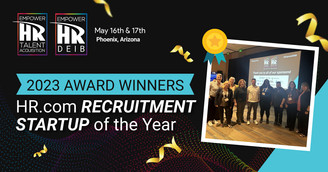What’s the No. 1 concept that derails a lot of best efforts in healthcare recruitment?
There are a lot of options as an answer to this question, but it’s hard to argue against “busyness.” Hiring managers are too busy. Members of the team are too busy to review or come together on a candidate. The recruiter him/herself might be too busy with calls to focus on context, information-gathering, or notes/intel being passed to the hiring manager. Everyone is very busy. When it comes “too busy,” the best elements of recruiting can slip.
Why is this the reality?
Lots of reasons, many of which are heavily psychological, which we will not go into super deeply here (this is not Psychology Today or anything). One reason, though, is that people are often impressed by busyness, with certain research noting that — especially for Americans — “by telling others we are busy and working all the time, we are implicitly suggesting we are sought after, which enhances our status.”
Another reason is that busyness creates euphoric feelings, akin to substance abuse in some ways, in many individuals.
And, let’s be realistic: there’s often a lot of work that needs to get done. You’re legit busy. And if you just went through any layoff wave because of COVID, there’s a chance you’re doing the work of 2-3 people at this moment. Busy.
What does this look like in healthcare recruitment?
In many ways, busier. There are crazy schedules and patient needs and meetings/urgent things that flare up constantly. If you work in a hospital or other delivery center right now, things are completely chaotic.
So, if there is any talent acquisition going on at the moment, “busy” is always going to win the day. It’s really hard to corral nurses, physicians, admins, or business planners together to evaluate a candidate, weigh in on a candidate, or even find time to interview a candidate. Video? Good luck. You might catch a break and have a nurse who can do a video interview in a closet on her iPhone at 9:20pm, and even that would be a version of a small miracle.
But if you can’t find ways around the busy/chaotic, you can’t get alignment and get good people.
So now what?
Here’s a couple of basic rules for beating back busy in broader recruiting, but especially healthcare recruiting:
- Phone over video: Video is great and has its place. But phone is much easier, and phone should be the crux of a recruiter’s existence anyway.
- Create pockets of “own time” for stakeholders: What you want to do is organize everything for the stakeholder, present it in email/folders/files/whatever, and give them a chance to evaluate on their own time, not on your time. You can set a time window to review, but they need to carve out their own time. Forcing them into your schedule windows will mostly engender resentment and the evaluations won’t get done.
- Have easy comparisons available: Let’s say all candidates answer one core question about the best patient experience they’ve been a part of. Clip those answers together so that stakeholders can listen to 5-6 candidates answer that one question. Direct, easy comparisons.
- Respect time: Again, give windows and provide deadlines and guidance, but make it easy and respect the time of stakeholders. No one wants to have their time flexed on, and no one wants to be perceived as “not busy,” which — see above — could be seen as “not valuable.”
- Process and organize: And then rinse and repeat. Once you find the models that work for your stakeholders (hiring managers, teams, front-line workers), just keep working them and repeating them until they’re second nature for everyone that needs to touch a new hire.
Where does Honeit fit in with all this?
We can do all the things described above to cut through busy/chaos and give your stakeholders a consistent, repeatable process executed on their own time. Accuracy, speed, and alignment is the name of the modern recruiting game. See how we’ve helped others.


